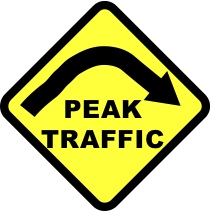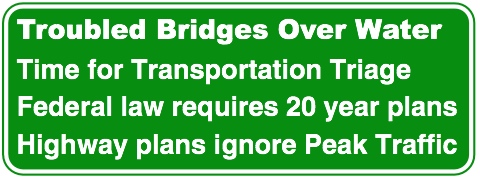Minnesota
| Trillion Dollar Highway Plans = Multiple Bypass Surgery a state by state list |
|
| High Priority Corridors specified by Congress in 1991, 1995, 1998, 2005, 2012 |
|
| NAFTA Superhighways | |
| Corridors of the Future | |
| J. Edgar Hoover Parkway: transportation surveillance, mileage taxes, RFID & video tolling |
|
| Paving Appalachia:
Corridor A to X in AL, GA, MD, MS, NC, NY, OH, PA, SC, TN, VA, WV |
|
| Alabama | Nebraska |
| Alaska | Nevada |
| Arizona | New Hampshire |
| Arkansas | New Jersey |
| California | New Mexico |
| Colorado | New York |
| Connecticut | North Carolina |
| Delaware | North Dakota |
| Florida | Ohio |
| Georgia | Oklahoma |
| Hawai'i | Oregon |
| Idaho | Pennsylvania |
| Illinois | Rhode Island |
| Indiana | South Carolina |
| Iowa | South Dakota |
| Kansas | Tennessee |
| Kentucky | Texas |
| Louisiana | Utah |
| Maine | Vermont |
| Maryland | Virginia |
| Massachusetts | Washington |
| Michigan | Washington, D.C. |
| Minnesota | West Virginia |
| Mississippi | Wisconsin |
| Missouri | Wyoming |
| Montana | |
High Priority Corridor 2: Avenue of the Saints Corridor
St. Louis to St. Paul, MO
- US 61, US 218, Iowa 27, I-380, US 18
High Priority Corridor 23: Interstate 35
The Interstate Route 35 Corridor from Laredo, Texas, through Oklahoma City, Oklahoma, to Wichita, Kansas, to Kansas City, Kansas/ Missouri, to Des Moines, Iowa, to Minneapolis, Minnesota, to Duluth, Minnesota, including I-29 between Kansas City and the Canadian border and the connection from Wichita, Kansas, to Sioux City, Iowa, which includes I-135 from Wichita, Kansas to Salina, Kansas, United States Route 81 from Salina, Kansas, to Norfolk, Nebraska, Nebraska State Route 35 from Norfolk, Nebraska, to South Sioux City, Nebraska, and the connection to I-29 in Sioux City, Iowa.
High Priority Corridor 41: The Falls-to-Falls Corridor
The Falls-to-Falls Corridor--United States Route 53 from International Falls on the Minnesota/Canada border to Chippewa Falls, Wisconsin.
Minneapolis - US 55 bypass (built, non-violent protest violently attacked by police)
I-335 (cancelled)
www.kurumi.com/roads/3di/ix35.html#335mn
2.74 miles [2]; proposed but unbuilt. Interstate 335 would have skirted the north side of downtown Minneapolis, connecting I-94 to I-35W near Broadway/Johnson Street. An 0.9-mile, $25M section was proposed as part of the 1970 highway bill.
Proposed in 1964, I-335 was killed around 1975 due to neighborhood resistance, as well as MNDot predictions that the route would actually increase congestion in the I-94 Lowry Hill tunnel.
A political action committee in the St Anthony East neighborhood, hearing of the planned elevated freeway, first requested that it be placed underground. When the highway department declined this proposal, the PAC moved on to opposing the freeway outright. [10]
It got as far as right-of-way acquisition, and some Evel Knievel ramps are visible on I-35W between Hennepin Avenue and Johnston St. After the highway was cancelled, the land was repopulated, with a swath of new homes going through an otherwise much older neighborhood. I-335 was withdrawn in early 1978, and funding was transferred to I-394 and other local projects.
St. Croix River Crossing - Stillwater
from: Smart Choices, Less Traffic: The 50 Best and Worst Transportation Projects In the United States,
Sierra Club Beyond Oil Campaign, November 2012
http://content.sierraclub.org/beyondoil/content/smart-choices-less-traffic
The St. Croix River Crossing bridge project will replace an 80-year old lift bridge connecting Stillwater, Minnesota to rural, western Wisconsin with a massive, highway-style mega bridge. A smaller, less expensive, and less intrusive bridge design over this federally designated Wild and Scenic River was rejected by the state of Minnesota in favor of the $690 million mega bridge. Because of its scope, the new bridge, located just seven miles from an existing highway bridge, required an act of Congress to exempt it from the Wild and Scenic Rivers Act, setting a dangerous precedent. The new highway-style bridge will open new areas of western Wisconsin to sprawling development - increasing pollution and the consumption of dirty oil in the region.








